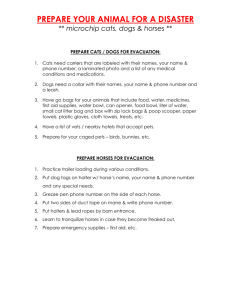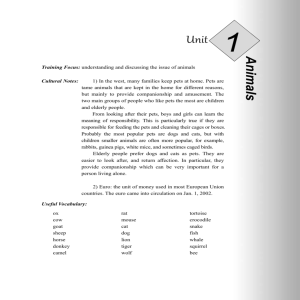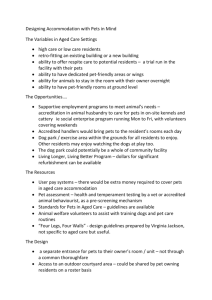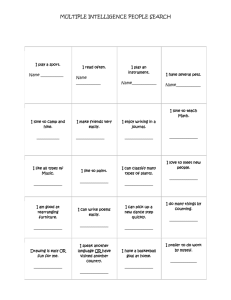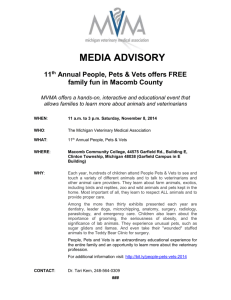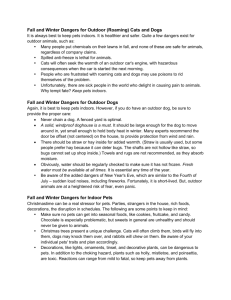Poisonous Human Medications - Issaquah Veterinary Hospital
advertisement
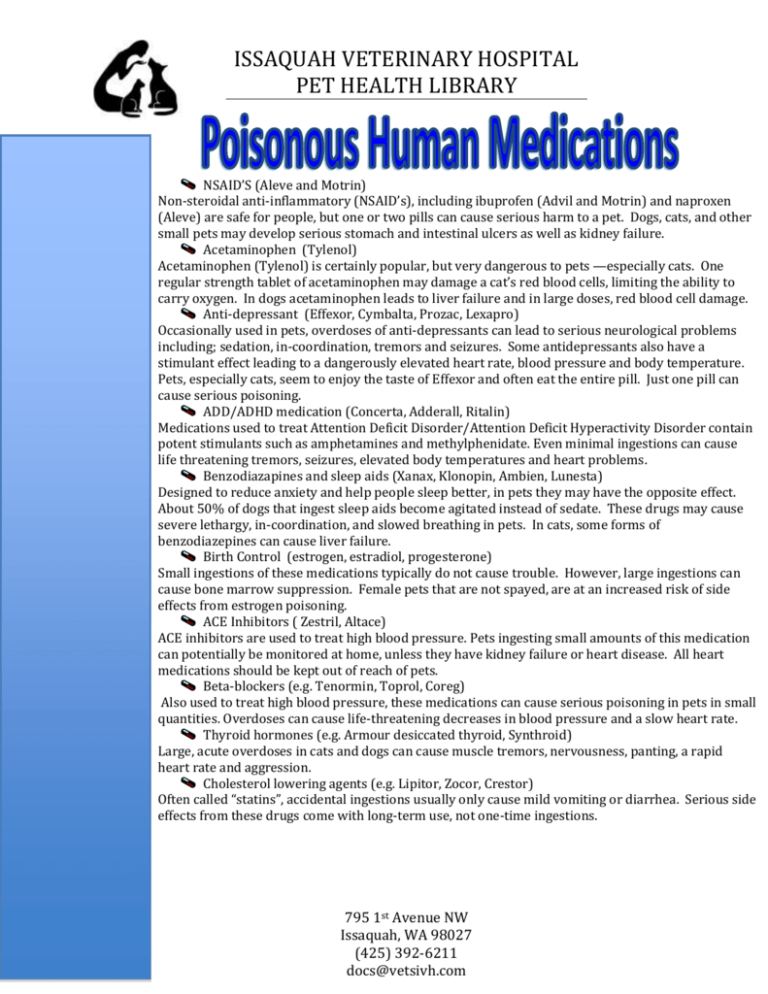
ISSAQUAH VETERINARY HOSPITAL PET HEALTH LIBRARY NSAID’S (Aleve and Motrin) Non-steroidal anti-inflammatory (NSAID’s), including ibuprofen (Advil and Motrin) and naproxen (Aleve) are safe for people, but one or two pills can cause serious harm to a pet. Dogs, cats, and other small pets may develop serious stomach and intestinal ulcers as well as kidney failure. Acetaminophen (Tylenol) Acetaminophen (Tylenol) is certainly popular, but very dangerous to pets —especially cats. One regular strength tablet of acetaminophen may damage a cat’s red blood cells, limiting the ability to carry oxygen. In dogs acetaminophen leads to liver failure and in large doses, red blood cell damage. Anti-depressant (Effexor, Cymbalta, Prozac, Lexapro) Occasionally used in pets, overdoses of anti-depressants can lead to serious neurological problems including; sedation, in-coordination, tremors and seizures. Some antidepressants also have a stimulant effect leading to a dangerously elevated heart rate, blood pressure and body temperature. Pets, especially cats, seem to enjoy the taste of Effexor and often eat the entire pill. Just one pill can cause serious poisoning. ADD/ADHD medication (Concerta, Adderall, Ritalin) Medications used to treat Attention Deficit Disorder/Attention Deficit Hyperactivity Disorder contain potent stimulants such as amphetamines and methylphenidate. Even minimal ingestions can cause life threatening tremors, seizures, elevated body temperatures and heart problems. Benzodiazapines and sleep aids (Xanax, Klonopin, Ambien, Lunesta) Designed to reduce anxiety and help people sleep better, in pets they may have the opposite effect. About 50% of dogs that ingest sleep aids become agitated instead of sedate. These drugs may cause severe lethargy, in-coordination, and slowed breathing in pets. In cats, some forms of benzodiazepines can cause liver failure. Birth Control (estrogen, estradiol, progesterone) Small ingestions of these medications typically do not cause trouble. However, large ingestions can cause bone marrow suppression. Female pets that are not spayed, are at an increased risk of side effects from estrogen poisoning. ACE Inhibitors ( Zestril, Altace) ACE inhibitors are used to treat high blood pressure. Pets ingesting small amounts of this medication can potentially be monitored at home, unless they have kidney failure or heart disease. All heart medications should be kept out of reach of pets. Beta-blockers (e.g. Tenormin, Toprol, Coreg) Also used to treat high blood pressure, these medications can cause serious poisoning in pets in small quantities. Overdoses can cause life-threatening decreases in blood pressure and a slow heart rate. Thyroid hormones (e.g. Armour desiccated thyroid, Synthroid) Large, acute overdoses in cats and dogs can cause muscle tremors, nervousness, panting, a rapid heart rate and aggression. Cholesterol lowering agents (e.g. Lipitor, Zocor, Crestor) Often called “statins”, accidental ingestions usually only cause mild vomiting or diarrhea. Serious side effects from these drugs come with long-term use, not one-time ingestions. 795 1st Avenue NW Issaquah, WA 98027 (425) 392-6211 docs@vetsivh.com


